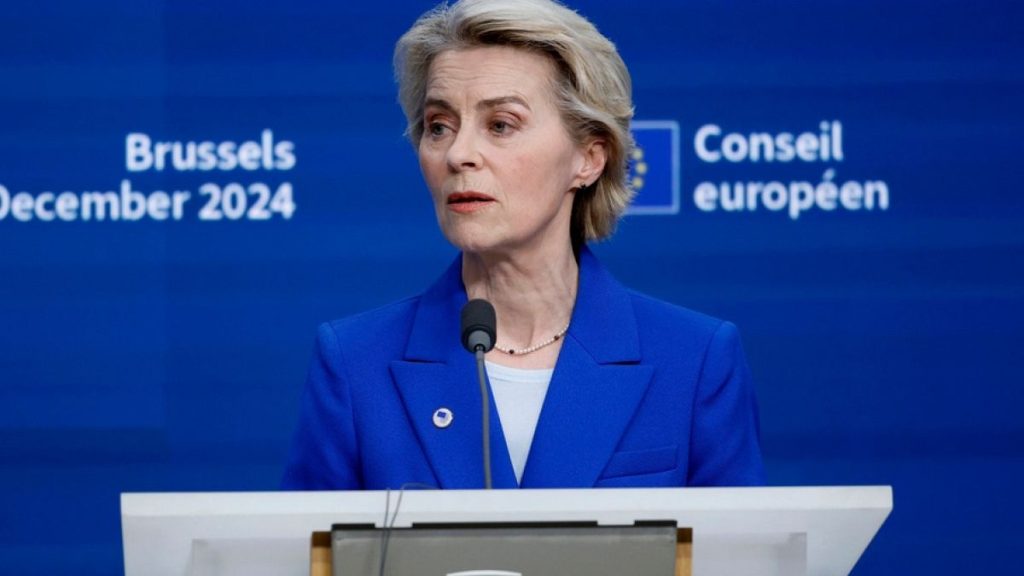Ursula von der Leyen’s Health Setback: A Deep Dive into the Implications for the European Commission
The recent announcement of European Commission President Ursula von der Leyen’s diagnosis with "severe pneumonia" has sent ripples of concern throughout the European Union. Her subsequent cancellation of all engagements for the next two weeks underscores the seriousness of her condition and raises questions about the potential impact on the Commission’s work, particularly given the critical juncture the EU currently faces. This unexpected health setback necessitates a thorough examination of the immediate consequences, potential long-term implications, and the mechanisms in place to ensure continuity within the Commission during her absence.
Von der Leyen’s illness comes at a crucial time for the EU. The bloc is grappling with complex geopolitical challenges, including the ongoing war in Ukraine, its ramifications for energy security and economic stability, and the delicate balancing act of maintaining unity among member states. Internally, the EU is navigating intricate policy discussions related to the Green Deal, digital transformation, and the post-pandemic recovery. The Commission President plays a pivotal role in steering these discussions, representing the EU on the global stage, and ensuring the effective implementation of EU policies. Her absence, even temporary, creates a void in leadership that requires careful management.
The immediate impact of von der Leyen’s illness is the disruption of her planned engagements. Her spokesperson, Stefan De Keersmaeker, confirmed the cancellation of all appointments for the next two weeks, including a significant speech in Lisbon and a crucial visit to Poland for the launch of the Polish Presidency of the European Council. These events were not merely symbolic; they represented opportunities to advance important policy discussions, strengthen diplomatic ties, and reaffirm the EU’s commitment to its member states. The postponement of these engagements underscores the disruption caused by her illness and raises questions about the timeline for rescheduling and the potential implications for the momentum of these initiatives.
Beyond the immediate disruption to her schedule, von der Leyen’s illness also raises broader questions about the continuity of leadership within the European Commission. While the Commission operates as a collegiate body with multiple Commissioners responsible for specific portfolios, the President holds overall responsibility for the Commission’s work and plays a crucial role in setting the strategic direction. Her absence necessitates a clear delegation of responsibilities and a robust communication strategy to ensure the smooth functioning of the Commission and maintain external confidence in its leadership. The specific arrangements for managing her responsibilities during her absence will be crucial in minimizing disruption and ensuring the continued effectiveness of the Commission.
The nature of "severe pneumonia" and its potential impact on von der Leyen’s long-term health and ability to discharge her duties is another area of concern. While her spokesperson provided no further details about her condition or the cause of her illness, pneumonia, particularly in its severe form, can be a debilitating illness requiring significant recovery time. The duration of her absence and the potential for long-term health implications will depend on the specific nature of her illness, her response to treatment, and her overall health status. The Commission will need to provide regular updates on her condition while respecting her privacy and ensuring clear communication about the implications for her leadership role.
This unexpected health setback highlights the importance of robust succession planning and contingency measures within the European Commission. While the Commission has procedures in place for the temporary delegation of responsibilities, von der Leyen’s illness underscores the need for a clear and transparent protocol for managing extended absences or unforeseen circumstances affecting the Commission President. This includes clarifying the chain of command, outlining the decision-making processes during the President’s absence, and ensuring clear communication with the European Parliament, member states, and the public. Such measures are crucial for maintaining stability, ensuring the continuity of leadership, and reinforcing public trust in the Commission’s ability to navigate challenging situations. Moving forward, the Commission should review and strengthen its contingency planning to address similar situations in the future and ensure the uninterrupted functioning of this vital institution. This includes not only addressing the immediate needs arising from von der Leyen’s illness but also establishing a more robust framework for managing future leadership transitions and unforeseen circumstances. This will be crucial for safeguarding the stability and effectiveness of the European Commission in the long term.














